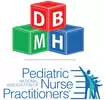Down Syndrome (Trisomy 21)
There are three types of Down syndrome: trisomy 21 (nondisjunction) accounts for 95% of cases, translocation accounts for about 4% and mosaicism accounts for about 1% (NDSS, 2014). All are associated with varying levels of intellectual disability (typically mild to moderate), characteristic facies, and hypotonia in infancy. Approximately 50% of children born with trisomy 21 have a cardiac defect (ASD is most common). Approximately 15% of children with trisomy 21 have hypothyroidism.
Screening
- Sequential Integrated Screening: two-step, non-invasive screening available in some states.
ultrasound performed at between 10-14 weeks gestation
2. Step 2: Maternal blood test (also known as a "quad screen") (alpha fetoprotein, unconjugated estriol, hCG, dimeric inhibin A)
performed at between 15-20 weeks gestation.
Assessment
- Amniocentesis
- Chorionic Villus Sampling (CVS)
- Ultrasound
Associated conditions to consider...
|
|
Position Papers
| Health care information for families of children with Down Syndrome (AAP, 2013) | |
| File Size: | 205 kb |
| File Type: | |
Articles
-
Bull, M. (2011). Health Supervision for Children With Down Syndrome. Pediatrics, 128, 2. pp 393-404.
Resources
|
Organizations:
|
